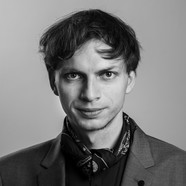‘I don't know if anyone today … can imagine what laughter meant in a Nazi concentration camp,’ wrote one survivor of the World War II Jewish ghetto at Terezín/Theresienstadt in 1961. More than 40 years later, several original scripts written in the ghetto came to light—and almost all of them are comedies. In this lecture Dr Lisa Peschel will examine these scripts through the lens of recent research on the psychological and social effects of humour: how can we decode the ‘inside jokes’ in these plays, and how might they have created the positive emotions that the survivors remember? The lecture will feature short performances of excerpts from several of the scripts.
Dr Lisa Peschel is a senior lecturer (associate professor) in theatre in the School of Arts and Creative Technologies, University of York, England. She has been researching theatrical performance in the Terezín/Theresienstadt ghetto since 1998. Her articles on survivor testimony and scripts written in the ghetto have appeared in theatre- and Holocaust-related journals in the US and the UK and in Czech, German and Israeli publications. She has lectured and conducted performance workshops at institutions in the US and UK, in Europe, South Africa and Australia. From 2014 to 2018 she was a co-investigator on the £1.8 million project Performing the Jewish Archive, funded by the UK Arts and Humanities Research Council. Her monograph in progress, Stages of Life: Survivor Testimony on Theater in the Terezín/Theresientstadt Ghetto, traces the testimony of five Czech-Jewish survivors from the immediate postwar period to the 1960s, the 1990s and her own interviews with them in 2004-08.
Přednáška proběhne hybridně - osobně v Brně a online přes ZOOM.










